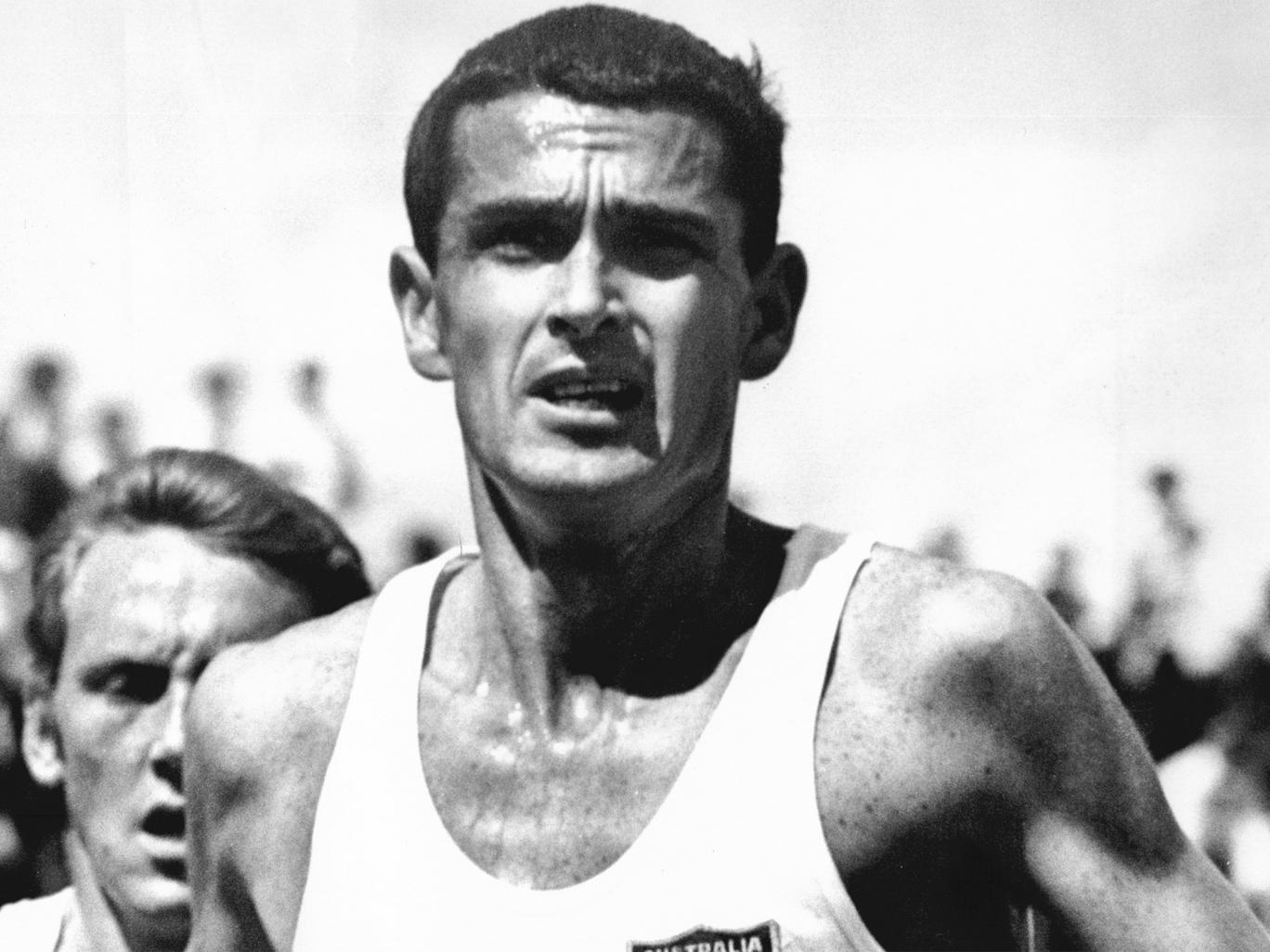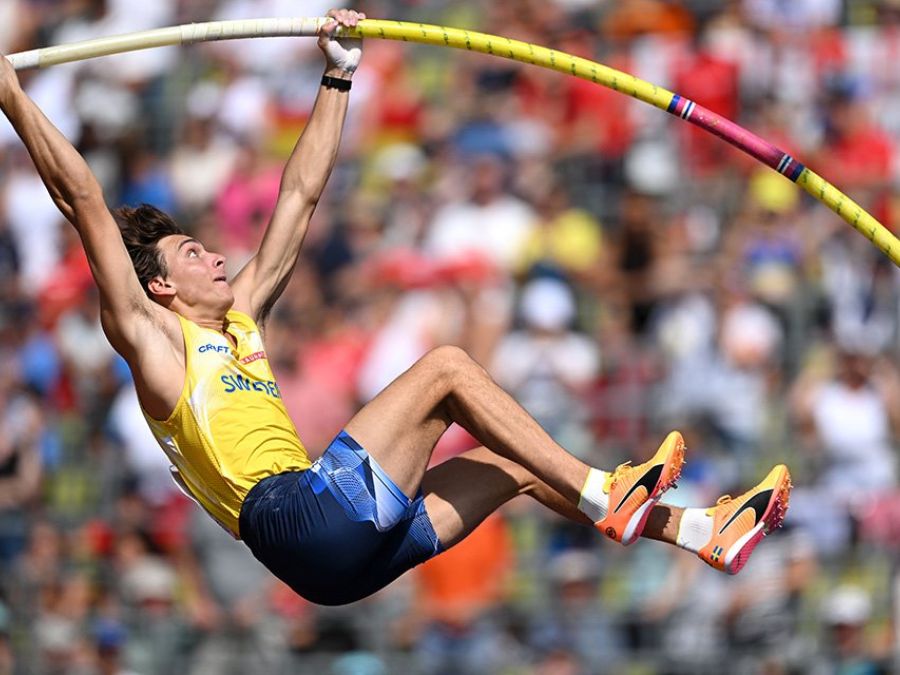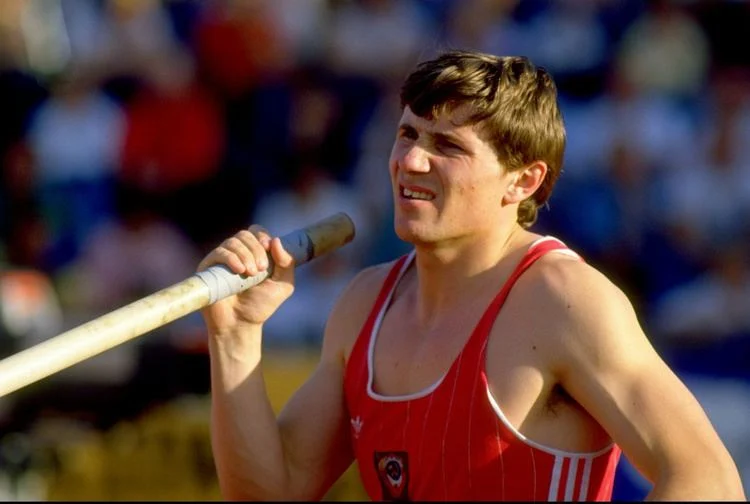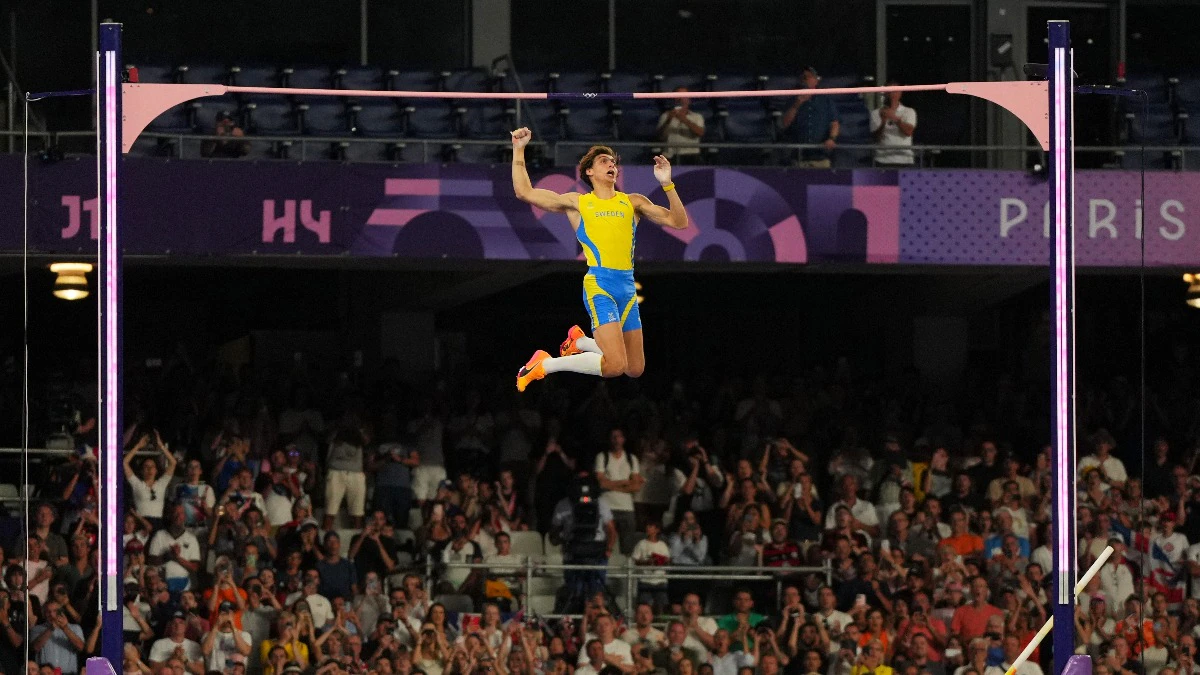A column by Len Johnson
It’s easy to set a world record. Asked once how he felt about doing it, Ron Clarke responded that once you’ve set one it’s just a matter of running a personal best.
Clarke should know. He set anywhere from 18 to 21 world records in his storied career. The first, for six miles in the 1963 Zatopek 10,000 was a simple maths exercise, Judging Sando Iharos’s record as ripe for the picking, Clarke devised a lap schedule and stuck to it. His second record – the 10,000 metres – was almost as easy, just a matter of finishing the race, which he was reminded to do by his mate Neil Robbins.

I started thinking about world records when the bar in the men’s pole vault at last week’s world indoor championships went up to 6.00 metres with both Mondo Duplantis and Emmanouil Karalis tied in the lead. Neither had missed a height and Karalis now elected to pass. I wondered whether anyone had ever passed at six metres before, a mark only 29 men have ever achieved, other than through tactical necessity.

Turns out you only had to go back a couple of weeks to the All Star Perche (French for pole vault) on 1 March, Duplantis won with the latest of his 11 world records of 6.27. Karalis was second, with both men keeping a clean sheet up to 6.02. Neither attempted 6.00, though this was just the set progression of heights – 5.97 to 6.02 – rather than a tactical decision by either vaulter.
But another thought occurs. The 6.27 Duplantis cleared at the All Star meeting is his outright personal best. When Sergey Bubka first cleared six metres in Paris in 1985 he came into the competition at 5.70, just 24 centimetres below his then PB of 5.94. How long, I wonder, before we see Duplantis – or Karalis – enter a competition at six metres. Unthinkable, isn’t it (or wasn’t it).
The question became how to set a world record. Of course, as an Australian distance runner, I’ve got the greatest respect for Clarkie’s run-one-then-it’s-just-a-PB view of the matter, but now I was in the rabbit-hole of pole vault world records, perhaps I needed to look for further clues there.
Bubka cleared six metres forty years ago this July, the fifth of his 17 outdoor world records. France’s Renaud Lavillenie was the first man to go higher when he achieved 6.16 indoors at the pole vault meeting in Donetsk, Bubka’s hometown, in 2014. In 2020 Duplantis cleared 6.17 indoors in Torun, Poland, and he has held the outright world record ever since.

So, for the past 40 years, two men have dominated world pole vaulting. A duopoly broken only by the Lavillenie interregnum. What constitutes the world record has toggled between the highest outdoor vault and the highest vault indoors and out but it has pretty well been only Bubka and now Duplantis at the top.
In Bubka’s time there were separate outdoor and indoor records. He set 35 world records and was an equal opportunity record breaker – 17 outdoor, 18 under the roof. Duplantis, who has competed largely, if not completely, under the outright record regimen, has set 11 world records.
Is there any commonality? A strategy which, properly executed, is more likely than not going to result in a world record. In commentary at the world indoor championships Rob Walker observed accurately that all vertical jumpers expend energy at each attempt and so the fewer jumps you attempt throughout the competition the better. Seems pretty right.
Next, into the World Athletics Progression of World Records book, for detailed stats of each world record competition. For Bubka, I started with his historic six-metres clearance on 13 July 1985, followed his outdoor world record progression to 6.14 before concluding with his final record – an indoor mark – at 6.15. Fourteen in all.

That was Bubka’s only indoor record not matched by one at the same height outdoors. Duplantis’ s first two ‘world records’ – 6.15 and 6.16 – were outdoor competitions but below Lavillenie’s 6.16. His first outright record was 6.17 indoors. All went into the blender.
As already mentioned, in Bubka’s first six-metre jump he came in at 5.70, clearing first time, before going to straight up to 6.00 which he got at the first try. Two heights, four jumps, a 30cm increment up to the record height.
Simple, as was the pattern Bubka almost invariably followed of come in high, split the difference between opening height and world record, then world record. The greatest increment between final and penultimate heights was 33cm when he cleared 5.60, 5.80 and then 6.13. Seven more of his records the height below the record height was 20cm or more. Twelve times he attempted just two heights en route to a record, on one it took three and once, just one.
Six times Bubka took just three jumps to secure a world record. On three more occasions it was four, five once, six and seven twice each. Economy of effort indeed.
Duplantis has been a little more circumspect – you wouldn’t call anything about pole vaulting conservative!. His biggest jump up to a world record has been 26cm, with three others at 20cm or more. He has also jumped at intermediate heights slightly more – never less than three – than Bubka. Against that he has achieved three of his world records at world championships (Eugene, Budapest) and Olympics (Paris). That’s a highly impressive statistic.
In the 6.27 world record Duplantis came in at 5.65 then cleared that height, 5.91, 6.02, 6.07 and 6.27 first time. “I just felt really good. What can I say? I came here to do it. I put everything in place to do it. The runup worked really well. I just did it.” The bit about the runup may have been self-evident!

There you have it then. To set a pole vault record simply start high, clear intermediate heights first time and arrive fresh enough for three tries (should you need them) at the record.
As the great rural philosopher Fred Dagg (aka the late comedian John Clarke): “I’ll get out of your way now and let you get on with it.”
Let us know how you go.



